Sustainability Awards

Carbon Neutrality

University of North Carolina – Chapel Hill
As a university food service provider, we lie at the intersection of the food industry, and our decisions can have significant climate impacts regarding both the food we serve and how we dispose of it. CDS’s Sustainability Team implements multiple carbon reduction strategies to reduce internal GHG emissions, including offering climate-friendly menus and student engagement opportunities. These initiatives directly contribute to climate commitments set by Aramark and the University of North Carolina-Chapel Hill on the path to net zero carbon emissions.

New York University
At NYU Eats, we have the privilege of feeding thousands within the New York University community. Food is not only our core competency but also our passion, and we strive to ensure that our services meet the highest standards of quality and sustainability. As part of our commitment to sustainability, NYU Eats works diligently to minimize waste, conserve water and electricity, and encourage the purchasing of seasonal and locally sourced produce. Additionally, we actively educate the community on sustainable practices, with a key focus on creating a greener campus.
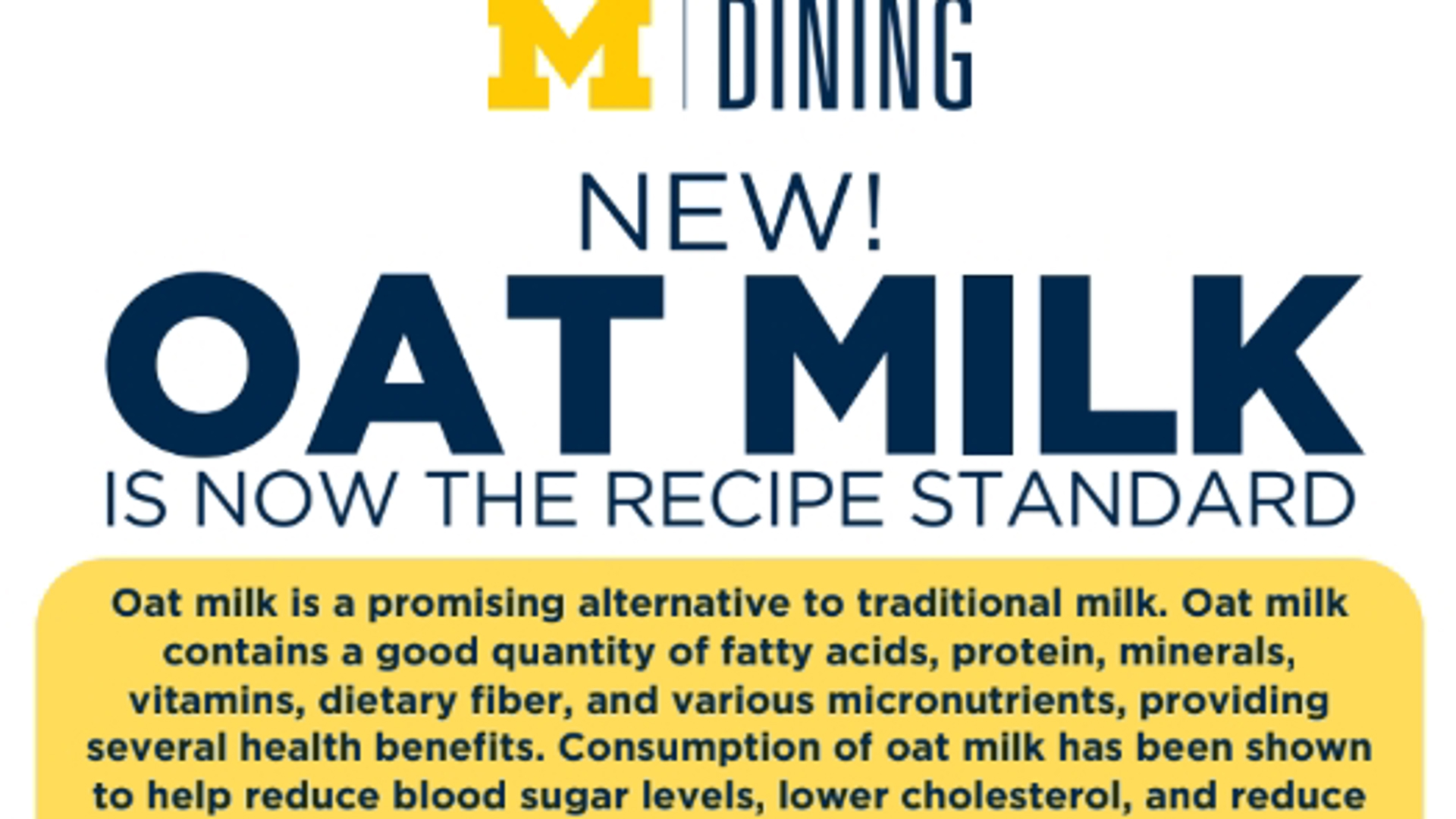
University of Michigan
M Dining has made strides in its carbon neutrality initiatives by making oat milk the default choice in all campus cafes. This decision aligns with U-M’s broader sustainability goal of Carbon Neutrality, particularly in reducing the carbon footprint associated with dairy consumption. By making oat milk the default in all barista-made beverages, the initiative reduces greenhouse gas emissions, conserves water, and optimizes land use, all while promoting social responsibility and accessibility. This initiative has led to a measurable reduction of approximately 20,000 kg of CO2 carbon emissions in the Fall 2024 semester as compared to Fall 2023 and increased student engagement in sustainability efforts.
Diversity, Equity & Inclusion/Social Justice

University of Michigan
The University of Michigan annually commemorates Martin Luther King Jr. Day with a symposium dedicated to honoring his legacy. During this event, classes are suspended, enabling students to attend a memorial keynote lecture and participate in numerous other complementary events held on the day and throughout the subsequent week. When requests from team members for more active participation in the symposium arose, Michigan Dining initiated the “Food as Resistance” event in partnership with the University of Michigan Sustainable Food Systems Initiative and their free community course “Food Literacy for All.”

Boston University
BU Dining is committed to sourcing from minority-, women-, veteran-, LGBT-owned, small, or disadvantaged businesses. Additionally, we source from a variety of Certified B Corps, which exhibit transparent commitments and practices regarding social and environmental performance, and a variety of fair-trade certifications ensuring fair wages and safe working conditions for those producing products we purchase. We work with Supplier.io and MaetaData to ensure we are accurately reporting both Tier 1 and Tier 2 diverse and responsible purchases.
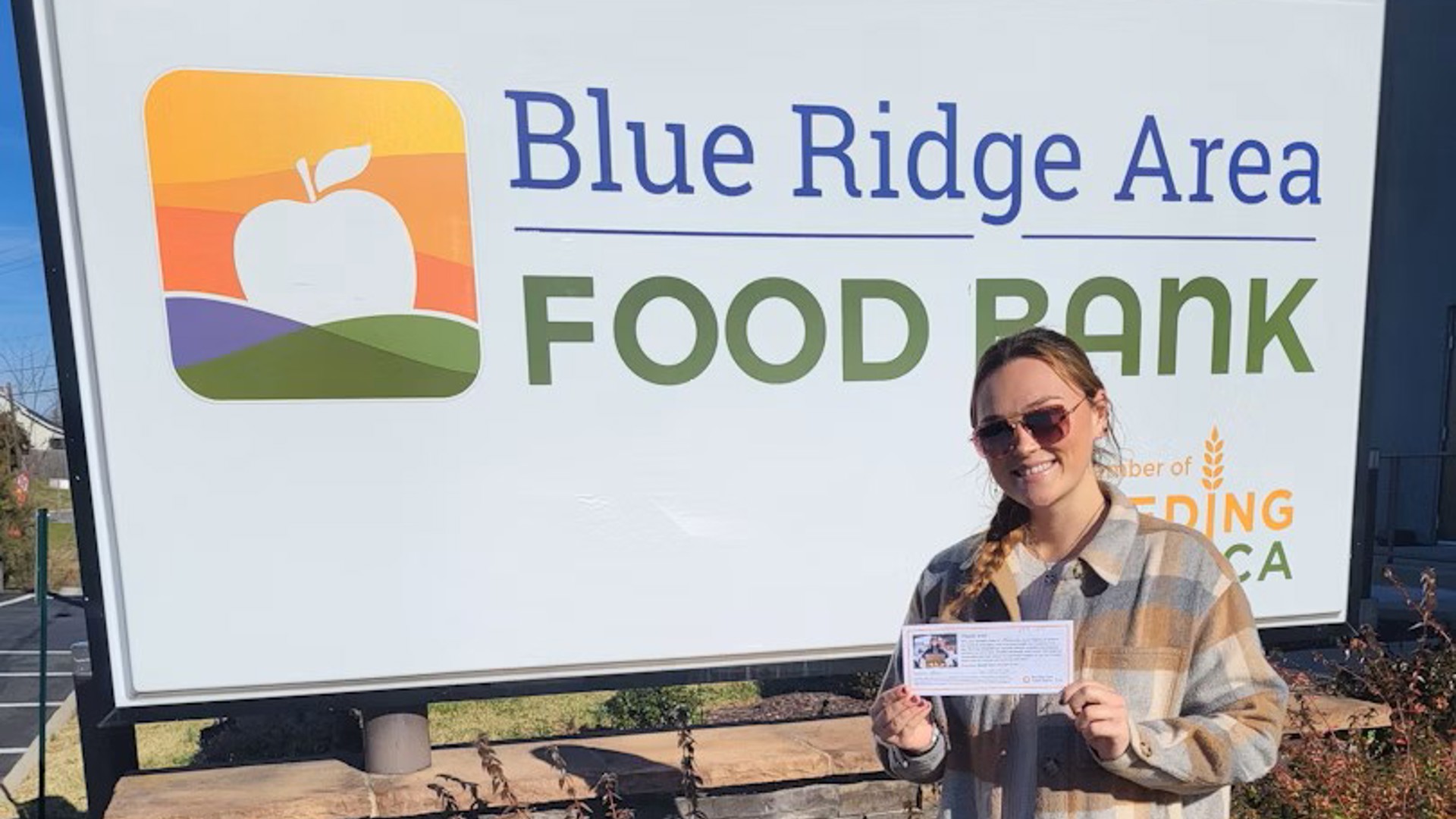
James Madison University
James Madison University Dining is proudly ranked among the top ten by the Princeton Review—a distinction earned through more than just high-quality food, exceptional service, and outstanding customer experiences. At JMU Dining, we prioritize amplifying the voices of our student community, ensuring their needs and concerns remain at the heart of everything we do.
Sustainable Procurement
Waste Reduction
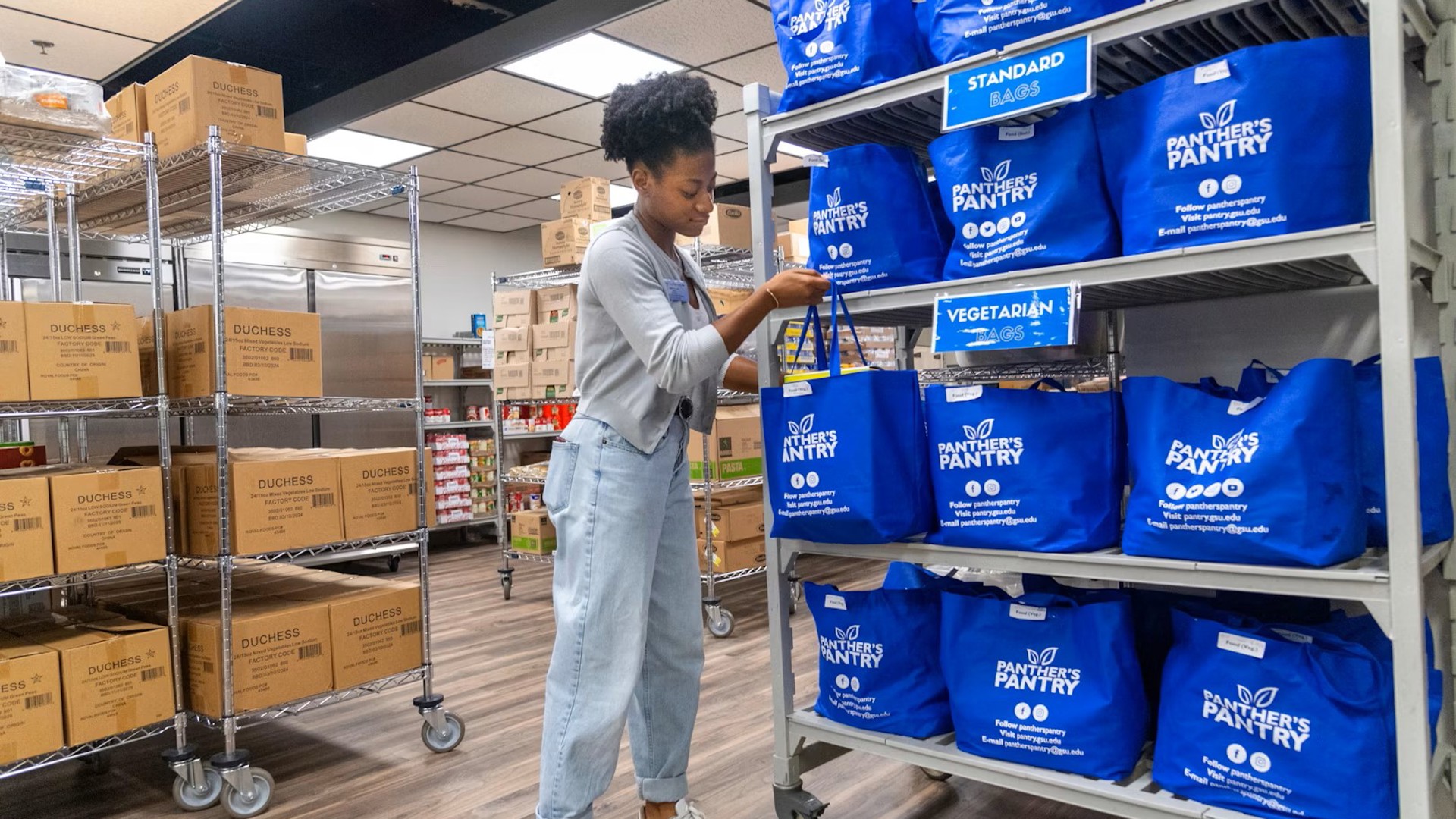
Georgia State University
Food waste is a significant issue in university dining halls, with an estimated 22 million pounds thrown out by college campuses nationwide (Food Recovery Network). Drawdown Georgia estimates that over two million tons of food is wasted in Georgia every year; they identify food waste reduction as a top climate solution.
Georgia State University is committed to maintaining sustainable operations in our dining halls. All three of our dining halls were awarded the prestigious 3-star green certification from the Green Restaurant Association based on the categories of disposables, energy, food, furnishings and building materials, pollution and chemical reduction, and waste and water use.
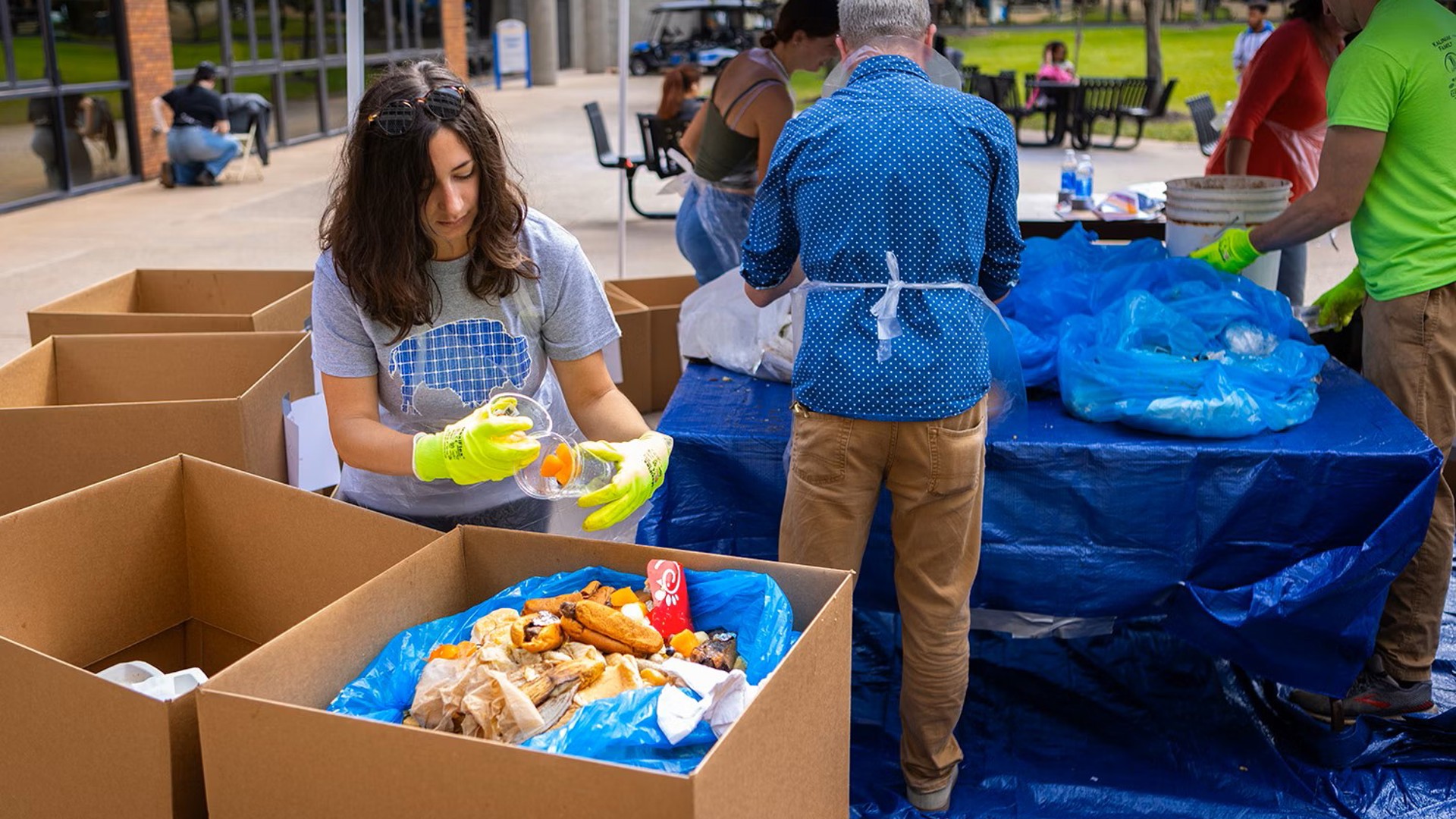
SUNY Buffalo
The BuffaLow Waste initiative, conceptualized and put into action by Campus Dining and Shops (CDS), is a multifaceted waste reduction program that set out to reduce single-use disposables, divert waste by recovering surplus food, encourage recycling and composting, and educate students, faculty and staff on the significant impact reducing all waste has in our community and planet.
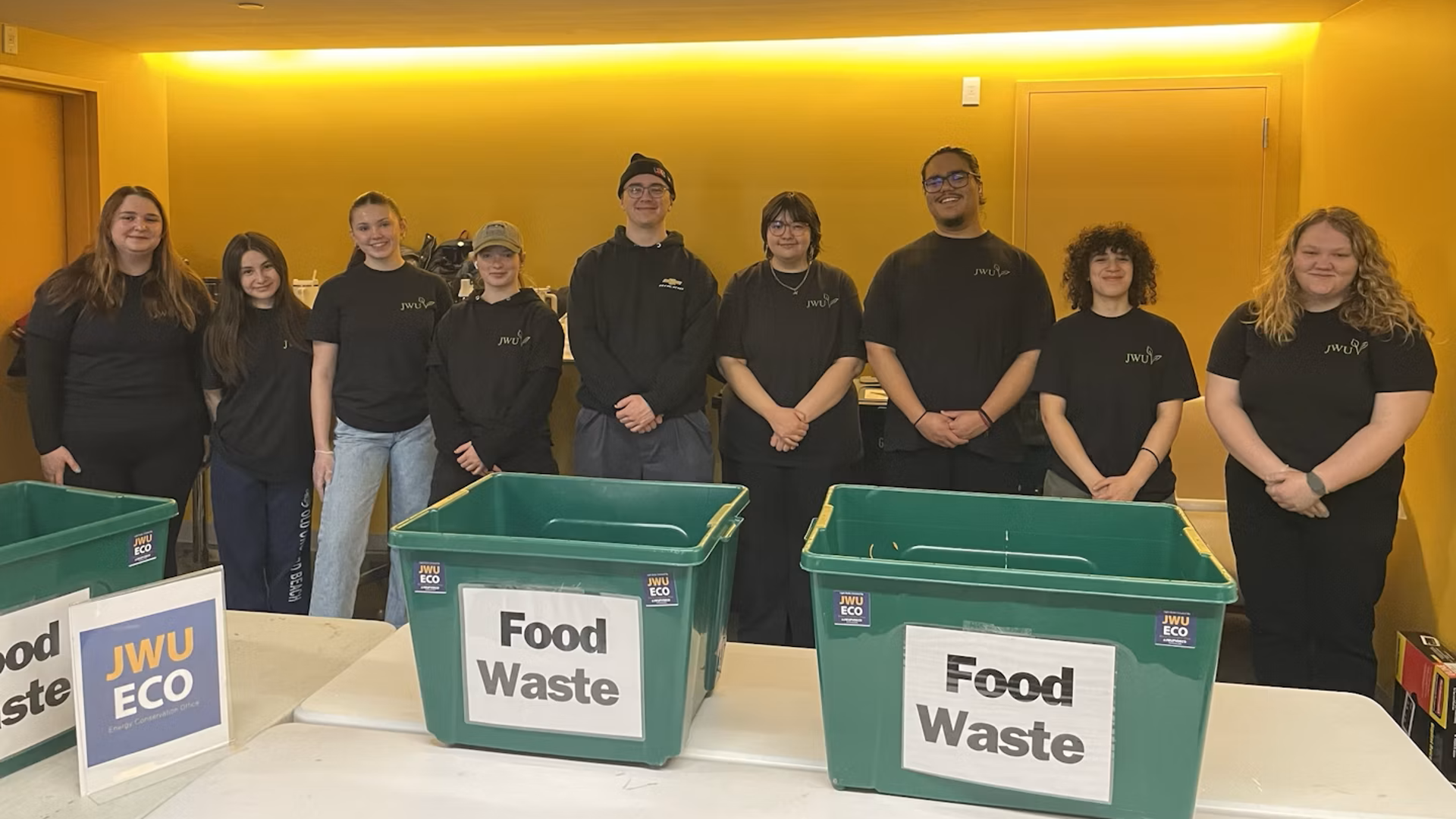
Johnson & Wales University
Johnson & Wales University (JWU) in Providence, RI, is leading the way in sustainability with a comprehensive waste reduction program. Through strategic recycling, composting, meal rescue efforts, and mindful supplier and procurement choices, JWU is actively minimizing its environmental footprint. By leveraging data collection and reporting, JWU tracks progress and reinforces its commitment to a greener, more sustainable future. These initiatives are instrumental in advancing waste reduction and making a significant environmental impact. Highlights include student-run dining waste audits, the adoption of eco-friendly to-go containers in all-you-care-to-eat dining halls, a new partnership with Bootstrap Compost with three-stream waste containers, and a longstanding collaboration with a local pig farmer who collects back-of-house food waste.





